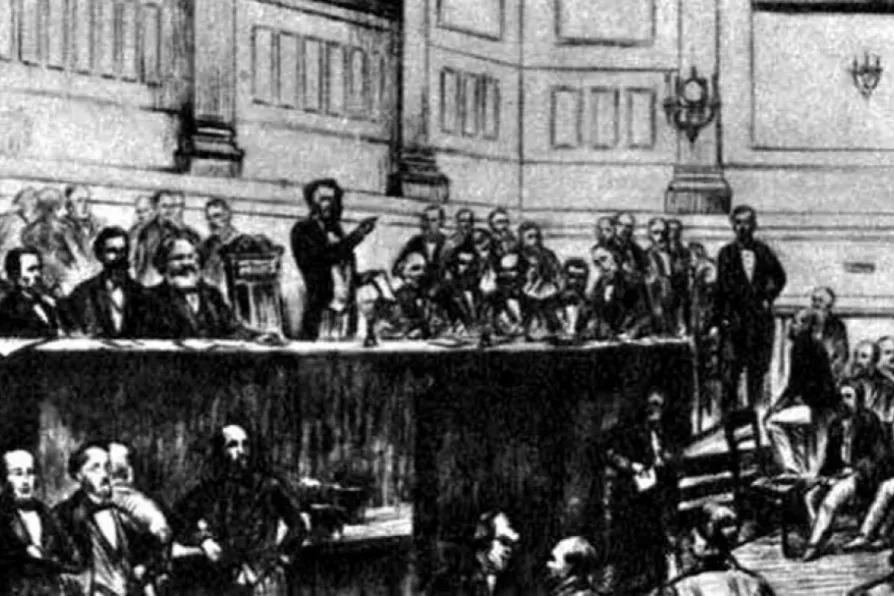SOLOMON HUGHES finds the government went along with a US scheme to distract from Israel’s lethal Gaza blockade with an impractical floating pier scheme – though its own officials knew it wouldn’t work

 A sketch of the congress of the International Workingmen's Association, also known as the First International
A sketch of the congress of the International Workingmen's Association, also known as the First International
KARL MARX lived permanently in London from 1849 until his death.
London, and to a lesser extent Brussels, was the place of refuge for radicals fleeing repression after the European revolutions of 1830 and 1848. The city thus became the hub of revolutionary émigré activity.
Britain did not experience similar uprisings to those in Europe at the time. However, this did not indicate the absence of mass struggle.
Between the mid 1830s-1850s, Britain, the first industrial nation, witnessed the development of its most significant workers’ movement of the 19th century, Chartism.
This was a mass movement of all subdivisions of the working class affected by industrialisation. It created, in 1842, the world’s first workers’ political party, the National Charter Association.
By 1848 Chartism’s political orientation was moving towards socialism under the leadership of Ernest Jones and George Julian Harney.














